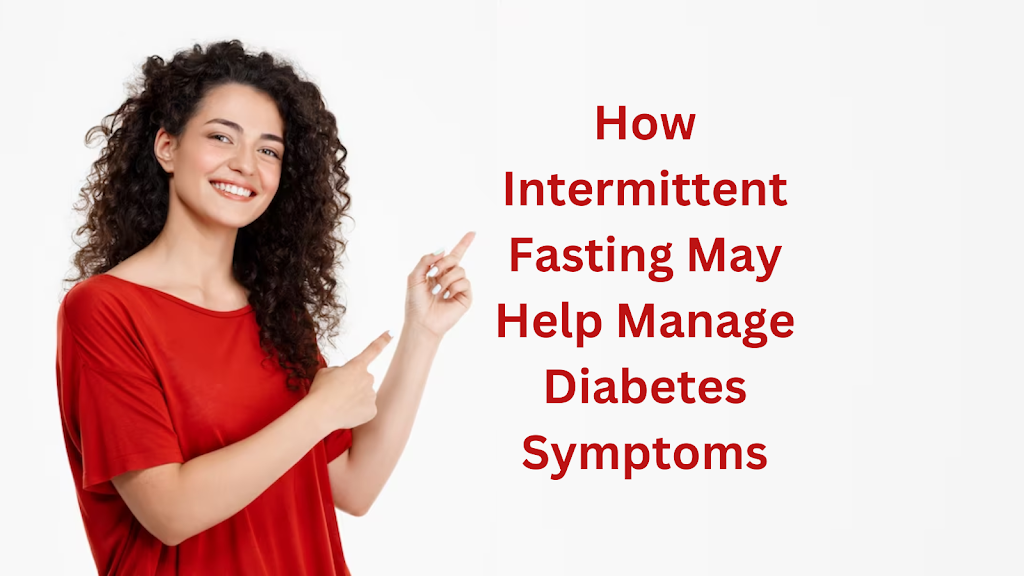How Intermittent Fasting May Help Manage Diabetes Symptoms
You may have heard of intermittent fasting as a weight-loss tool, but it has other potential benefits, too. In particular, intermittent fasting may help to manage diabetes symptoms. Here’s what you need to know.
Intermittent fasting is an eating pattern in which you cycle between periods of eating and fasting. There are different ways to do intermittent fasting, but the most common approach is to fast for 16 hours and then eat during an 8-hour window.
So far, research suggests that intermittent fasting may help to improve blood sugar control and cholesterol levels in people with diabetes. It may also help to reduce the risk of heart disease in those with diabetes.
Overview of Diabetes and Its Symptoms
Type 2 diabetes is a chronic condition that affects the way your body uses blood sugar (glucose). Glucose is a type of sugar that comes from the food you eat. It’s the main source of energy for the cells that make up your muscles and tissues.
Your body normally uses insulin to convert glucose into energy. But people with type 2 diabetes have insulin resistance. This means that their bodies don’t use insulin as well as they should. The pancreas makes more insulin to try to get glucose into the cells. But eventually, it can’t make enough insulin to keep up with the demand.
 |
| How Intermittent Fasting May Help Manage Diabetes Symptoms |
This can lead to high blood sugar levels. Over time, if blood sugar levels aren’t managed, they can damage organs and tissues. Symptoms of type 2 diabetes include: feeling very tired, frequent urination, feeling very thirsty, and blurred vision.
What Is Intermittent Fasting?
Intermittent fasting is a pattern of eating that alternates between periods of fasting and eating. There are different ways to do intermittent fasting, but the most common way is to fast for 16 hours then eat during an eight-hour window.
This approach to eating may help people with diabetes manage their symptoms. By not eating for a period of time, people with diabetes may be able to reduce their blood sugar levels and insulin resistance. Additionally, intermittent fasting has been shown to improve other health markers, such as cholesterol and blood pressure.
Potential Benefits of Intermittent Fasting for Diabetes
From what we’ve seen so far, intermittent fasting may help to manage diabetes symptoms by balancing blood sugar levels and improving insulin sensitivity. Doing this could help to reduce the need for medication, and make day-to-day life a little easier for those living with diabetes.
But that’s not all. Intermittent fasting has also been linked with a number of other health benefits, such as weight loss, reduced inflammation and a longer lifespan. So it’s not just a good option for those with diabetes; it’s a good option for everyone.
Different Types of Intermittent Fasting for Diabetes
Now that you know the potential benefits of intermittent fasting for diabetes, let’s look at the different types.
The most popular type is the 16:8 method, which requires you to fast for 16 hours each day and then eat all your meals within an 8-hour window. For example, if you start the day with breakfast at 9am and finish your last meal of the day by 5pm, you would have fasted from 5pm to 9am.
There’s also the 5:2 method, where you work out five days a week and fast for two non-consecutive days. The goal here is to eat only one small meal on fasting days and have a regular diet on the other five days.
Finally, there’s Alternate Day Fasting (or ADF), where you fast every other day and eat whatever you want on non-fasting days. For example, if you start your fasting period on Monday at noon, you would continue fasting until noon on Wednesday and then break your fast with a regular meal.
Health Risks to Consider Before Trying Intermittent Fasting for Diabetes
Before you decide to try intermittent fasting to help manage your diabetes symptoms, it’s important to consider the potential risks. Although it can be beneficial in many cases, it’s not for everyone.
If you have type 1 diabetes, this type of diet isn’t generally recommended, as it can be risky for people with low blood glucose levels. Also, if you take any medications that require food for absorption or have any chronic conditions like kidney or liver disease, or are pregnant or breastfeeding, it’s best to consult your doctor first before trying intermittent fasting.
Also bear in mind that you should avoid extreme calorie restriction when fasting and dehydration is a risk too. So make sure you keep up with your water intake during the day and get enough rest so that your body is well-equipped to handle the fasting periods.
Conclusion
If you’re diabetic and looking for ways to manage your symptoms, intermittent fasting may be worth a try. But always consult with your doctor before making any changes to your diet or exercise routine. And be sure to eat a healthy, balanced diet while fasting, so that you don’t lose any important nutrients.
